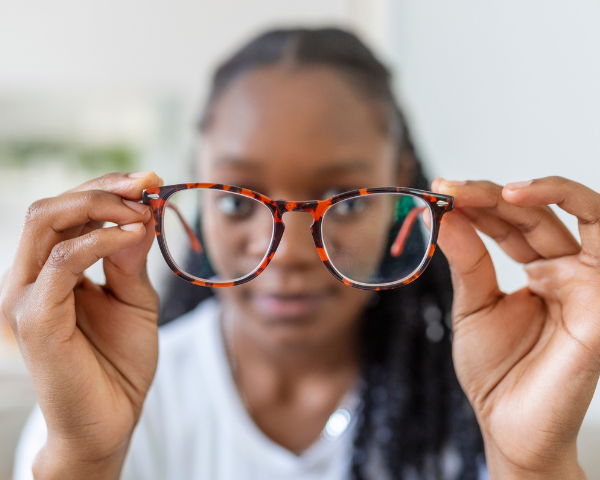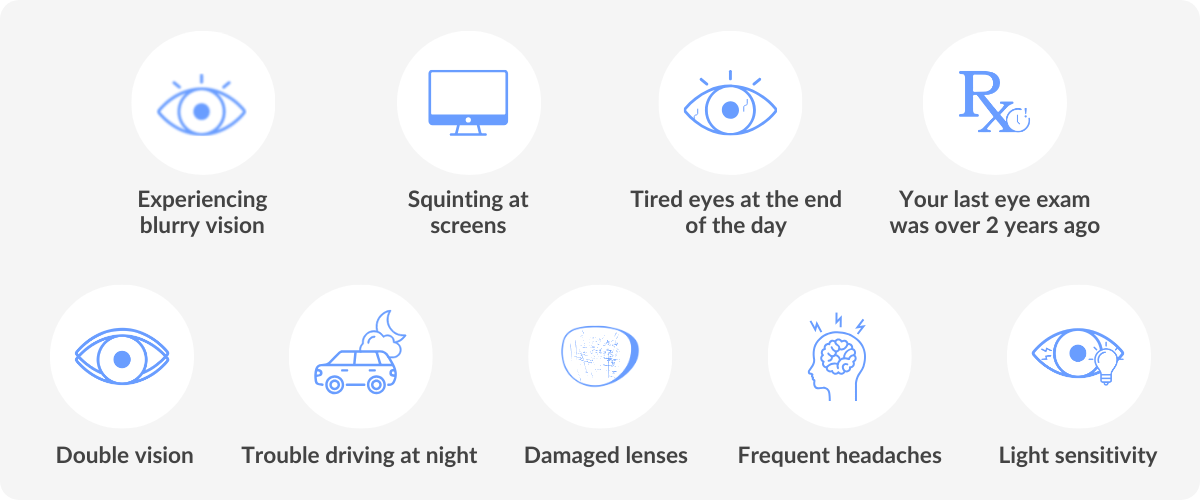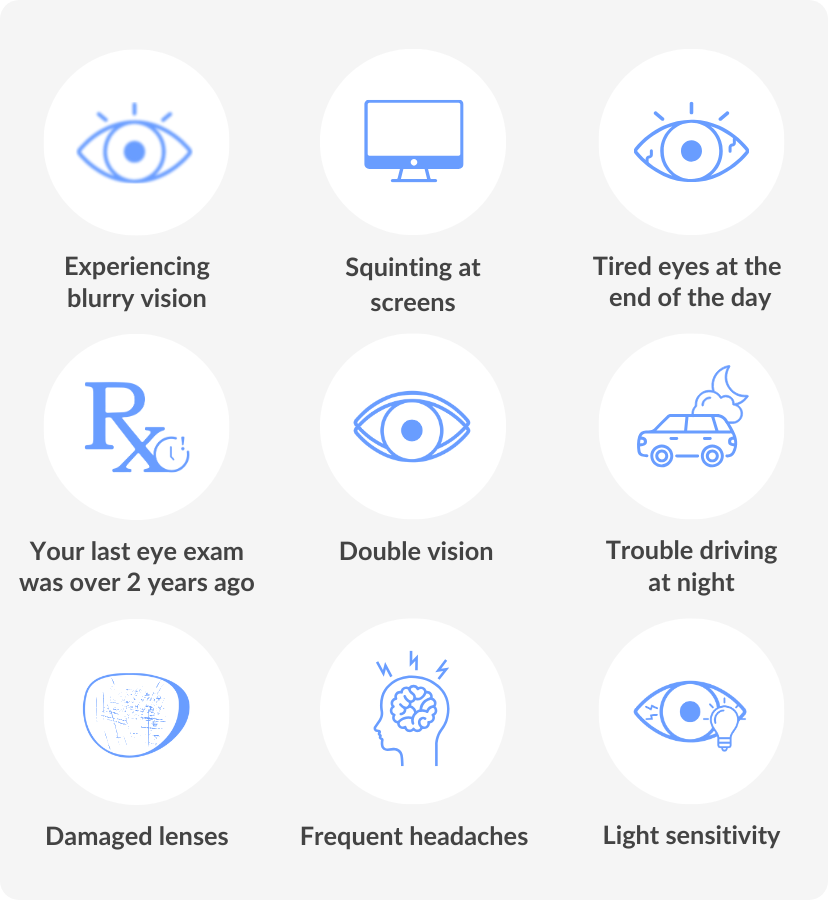Ask our dispensing optician
Your request was successfully submitted!
9 Signs You Need New Glasses

Reviewed by
Beck Jinnette
For most wearers, glasses are an essential part of daily life. Just as with other vital tools, since they are used so much, glasses can become less effective over time for various reasons.
So, how do you know when it’s actually time to get new prescription glasses? It’s either an outdated prescription issue, or the glasses themselves are not up to the task anymore.
Look out for these nine signs you need new glasses!


1. Experiencing blurry vision
This is one of the most common signs that your glasses prescription is outdated, and you need to book an eye exam to renew it.
Blurred vision when wearing your current glasses can indicate that your eyesight condition (i.e. astigmatism, myopia, hyperopia) has worsened. It might also indicate lens deterioration.
2. Squinting at screens
If you’re squinting more often when wearing glasses, especially at digital devices, it’s a sign.
This unconscious act of trying to gain clearer vision can result in further complications like eye strain (or digital eye strain in the case of digital devices), affecting your productivity and overall well-being.
So, if you find yourself squinting when reading something on your phone, on a restaurant menu, when watching tv or when driving, it’s time to get your eyes checked and invest in a new pair of glasses.


3. Tired or itchy eyes at the end of the day
Your eyes should feel comfortable with the correct prescription. If they’re consistently tired or you’re experiencing eye fatigue, your glasses might need a checkup.
It could also result from prolonged exposure to digital screens without proper protective blue light-blocking lenses.
4. Frequent headaches
Recurring headaches can be disruptive. If they’re concentrated around the temple or forehead, they may be due to your eyes overcompensating for a mismatched prescription.
This overexertion can be both uncomfortable and an obstacle in everyday tasks.


5. Double vision
If you experience double vision (also called diplopia), your eyesight and prescription eyeglasses require immediate attention.
If you suffer from diplopia and use prism lenses to treat your double vision, they may require adjustment.
If you don’t use them and you are seeing double, contact your eye doctor immediately. There could be underlying health issues.
6. Your last eye exam was over 2 years ago
Regular eye check-ups ensure you stay ahead of any vision changes. An exam every two years is a general recommendation, but specific conditions or age might necessitate more frequent visits.
Your eyes are evolving, and your glasses should evolve with them. Here, you can learn more about your prescription and how often it changes.
7. Trouble driving at night
If nighttime driving is becoming challenging, with issues like seeing halos around lights, that’s probably a sign.
These symptoms might suggest the need for specialised lenses (i.e. with anti-reflective coating) or a new glasses prescription to ensure safety on the road.
DID YOU KNOW?
It’s believed that as much as 90% of the information required for safe driving is derived from our visual system (Alvarez-Peregrina et al. 2021).
Therefore, it is essential to have regular eye exams to ensure you stay safe on the road.
8. Damaged lenses
Tiny scratches or cracks on your glasses lenses can distort the light entering your eyes, making it harder to focus and increasing the risk of eye strain during daily tasks.
Plus, if your glasses can’t seem to get fully clean, the coatings might be ruined and clouding the lenses. It’s very important that you learn how to clean glasses properly to avoid damaging them.


9. Light sensitivity
Increased sensitivity to light (also called photophobia) can be a sign of astigmatism or that your eyes need more time to adjust to light changes.
Either way, you might need a new prescription, even paired with transition lenses to help your eyes adjust and be comfortable in all environments.
How frequently should you renew your eyeglasses prescription?
The ideal frequency for updating your prescription varies from person to person.
While adults should generally aim for an eye check every one to two years, certain demographics, such as children or seniors, might benefit from more regular comprehensive eye exams.
Your optometrist is the best resource to determine the right frequency for your needs.
References
https://doi.org/10.3390/ijerph182212116
Related articles

Related articles






































